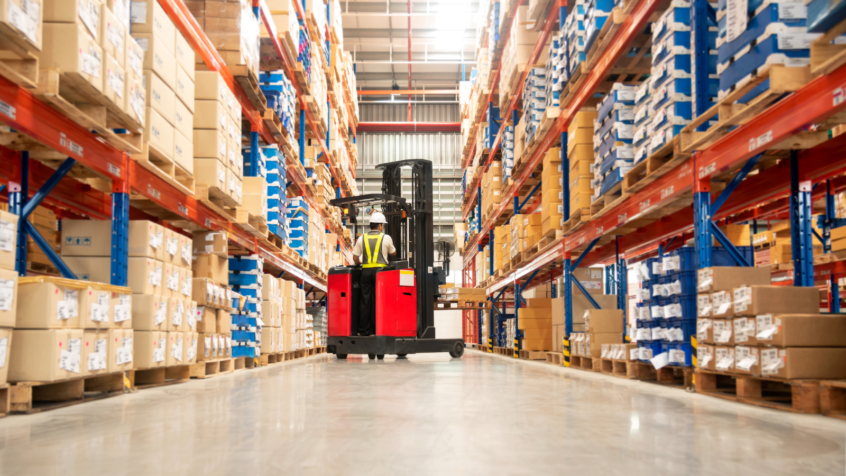In the world of international trade, efficient management of merchandise and timely distribution are key factors for success. One approach that has proven invaluable for import businesses is the utilization of bonded warehouses. These secure storage spaces provide a range of benefits, including deferred payment of customs duties and the flexibility to prepare goods for distribution.
A bonded warehouse is a designated storage area where imported goods can be stored without immediate payment of duty tax. This facility allows importers to make necessary modifications to their merchandise and gives them the flexibility to wait for increased demand before distribution. It’s important to note that while the term “warehouse” is used, the concept of bonded warehousing can encompass any secure space or building.
Types of Bonded Warehouses:
Bonded warehouses can be found in various countries worldwide, each with its own unique set of regulations. In the United States, these facilities are regulated by the U.S. Customs and Border Protection Agency (CBP) and are often referred to as customs warehouses or customs bonded warehouses.
The CBP defines eleven different classes of bonded warehouses, each catering to specific storage and manufacturing needs:
- Class 1: Government-owned or leased sites for goods under CBP examination or pending release.
- Class 2: Private warehouses exclusively for an importer’s own merchandise storage.
- Class 3: Public bonded warehouses dedicated to imported goods storage.
- Class 4: Bonded yards or sheds for heavy or bulky merchandise and even animals.
- Class 5: Storage of grain in authorized bins or designated parts of buildings.
- Class 6: Warehouses for manufacturing goods using imported materials subject to revenue tax.
- Class 7: Warehouses for smelting and refining imported metal-bearing materials.
- Class 8: Warehouses for cleaning, sorting, or repacking goods under CBP supervision.
- Class 9: Duty-free stores for selling conditionally duty-free goods outside CBP territory.
- Class 10: Warehouses for storing international travel merchandise and duty-free goods sold on aircraft.
- Class 11: Storage of General Order (G.O.) merchandise remaining unclaimed after 15 days.
Advantages of Bonded Warehousing:
Payment of customs duty can be postponed: This provides flexibility for pre-sale activities and helps improve cash flow. If the goods are exported, these charges can be completely avoided, resulting in potential tax savings of 25-30% through the adoption of bonded warehousing.
Safety and security are paramount in bonded warehouses: These facilities have 24/7 security personnel who monitor the premises. Additionally, modern security solutions such as security cameras, barcoding systems, and inventory systems are in place to carefully document and protect all stored commodities. Bonded warehouse facilities ensure quality preservation by providing suitable storage conditions, including temperature-controlled areas, dry containers, and freezers.
The proximity of bonded warehouses: to ports and airports is advantageous for importers, as it allows them to store their products near these transportation hubs until they are ready for distribution. This eliminates lead times and reduces transportation costs and carbon emissions, resulting in cost savings across the entire supply chain.
Deferred Payment of Import Duties: Duty fees are paid only when merchandise is released to the buyer, allowing importers to conserve cash flow and allocate resources more efficiently.
Avoidance of Double Fees: Bonded warehouses provide a favorable environment for manufacturing goods for export or consolidating items before final export, eliminating the need for double taxation.
Storage of Restricted Goods: Bonded warehouses offer exemptions from time restrictions for storing restricted goods, providing importers with ample time to complete necessary documentation and clearance processes.
Requirements for Establishing a Customs Bonded Warehouse:
To establish a bonded warehouse, a written application must be submitted to the local CBP port director. The application should describe the site’s location, class of warehouse desired (private or public), and estimate duties and taxes. Additional requirements may include obtaining a certificate acceptable for fire insurance purposes and providing detailed measurements and blueprints of the facility. CBP guidelines should be consulted during the application process, as specific classes may have additional prerequisites.
Considerations and Limitations:
While bonded warehouses offer significant advantages, certain considerations and limitations should be acknowledged:
- Time Limits: Goods cannot be stored indefinitely, and once the specified time is up, customs duties must be paid. Market conditions and demand fluctuations can impact the feasibility of selling goods for exportation within the designated time frame.
- International Differences: Each country may have its own regulations and time limits for bonded warehousing, necessitating thorough research when considering storage options abroad.
- Import-Focused: Bonded warehouses were designed specifically for the import industry and cannot be utilized solely for domestic products.
Bonded warehousing provides import businesses with valuable advantages, allowing them to manage their merchandise effectively, defer customs duties, and adapt to market conditions. The diverse classes of bonded warehouses cater to the storage and manufacturing needs of a wide range of products.
While certain limitations and considerations exist, the benefits of bonded warehousing make it a strategic choice for importers aiming to optimize their operations and mitigate financial risks. By partnering with a knowledgeable third-party logistics (3PL) provider, importers can navigate the complexities of bonded warehousing and ensure their storage requirements are met efficiently and effectively.
Is your company considering utilizing a customs bonded warehouse to enhance the efficiency of your logistics operations? If so, it is essential to have the appropriate tools and technology to handle increased inventory levels and shipping volumes effectively.
We provide cloud-based inventory management software, enabling you to optimize your experience with a customs bonded warehouse. Request a quote, and our experts will be in touch to provide you with the necessary information.

